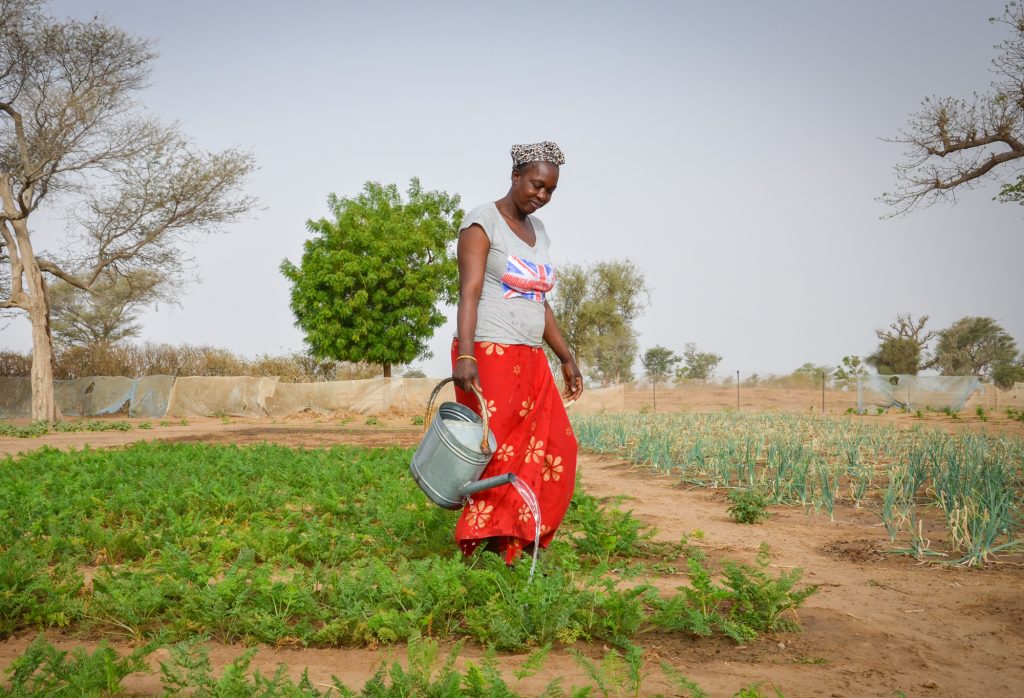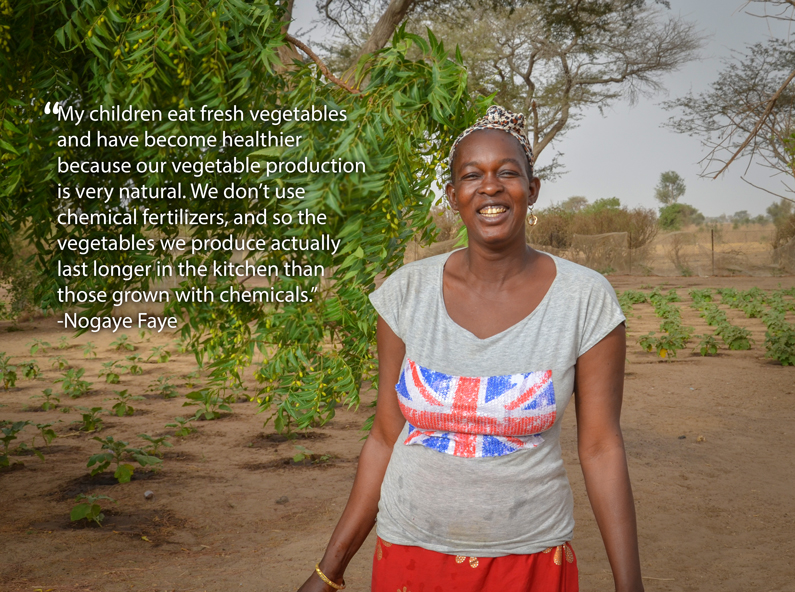When CREATE! partnered with the village of Mboss last year, the garden site was established to serve not only the immediate community, but also several other surrounding villages. Thanks to its convenient location on the main road and just outside of the larger town of Gossas. Because of this, the site has developed a robust cooperative group of 72 men and women. They have one hectare (about 2.5 acres) of thriving vegetable crops, a fast-growing tree nursery, two active VSLA groups, and a well that is providing fresh, potable water daily using a solar-powered pump.
Meet Nogaye Faye
Nogaye Faye, 47, is from the nearby town of Gossas. She comes to work at the site every day because of the benefits she has already seen from being a part of the garden cooperative. “I used to have hypertension because I would drink the salty water from the commercial system in town. But since I’ve been drinking the well water, I’ve become healthier,” she tells us. “I use the well water for growing vegetables in the site and my children use this water for drinking. Every day, I get 20 liters for my household consumption.”

Carrots are one of the crops currently growing in the Mboss community garden, a common ingredient in Senegal’s popular dish, ceebu jen (fish and rice with vegetables).
Having this access to clean water has led to many opportunities for women in Nogaye’s cooperative group. “Most of the women in our garden cooperative are vegetable sellers at the market in Gossas,” she explains. “Now that we have this site they no longer need to go far for buying goods because we produce a variety of vegetables ourselves.”
Improving Food Security with Community Gardens
Nogaye has also seen an improvement in the health and food security of her own family. “Now my children eat fresh vegetables and have become healthier because our vegetable production is very natural,” she says. “We don’t use chemical fertilizers, and so the vegetables we produce actually last longer in the kitchen than those grown with chemicals.”
As Nogaye has observed, vegetables grown commercially in Senegal with heavy fertilizers actually ripen faster. This leads to the vegetables becoming overripe too quickly after they’re purchased. CREATE! technicians and cooperative members have found that growing vegetables without these chemicals causes them to ripen more slowly at a natural rate. This way they have a longer shelf life after they’re harvested.
Now a year into their partnership with CREATE!, Mboss is beginning to establish their VSLA groups. They are also learning how to raise poultry and start planting fruit, nut, and shade trees. With the great enthusiasm, motivation, and commitment that the group has shown so far, we are confident that they are well on their way to achieving sustainability and self-sufficiency. We are so proud of women in the group who are leading the way!

